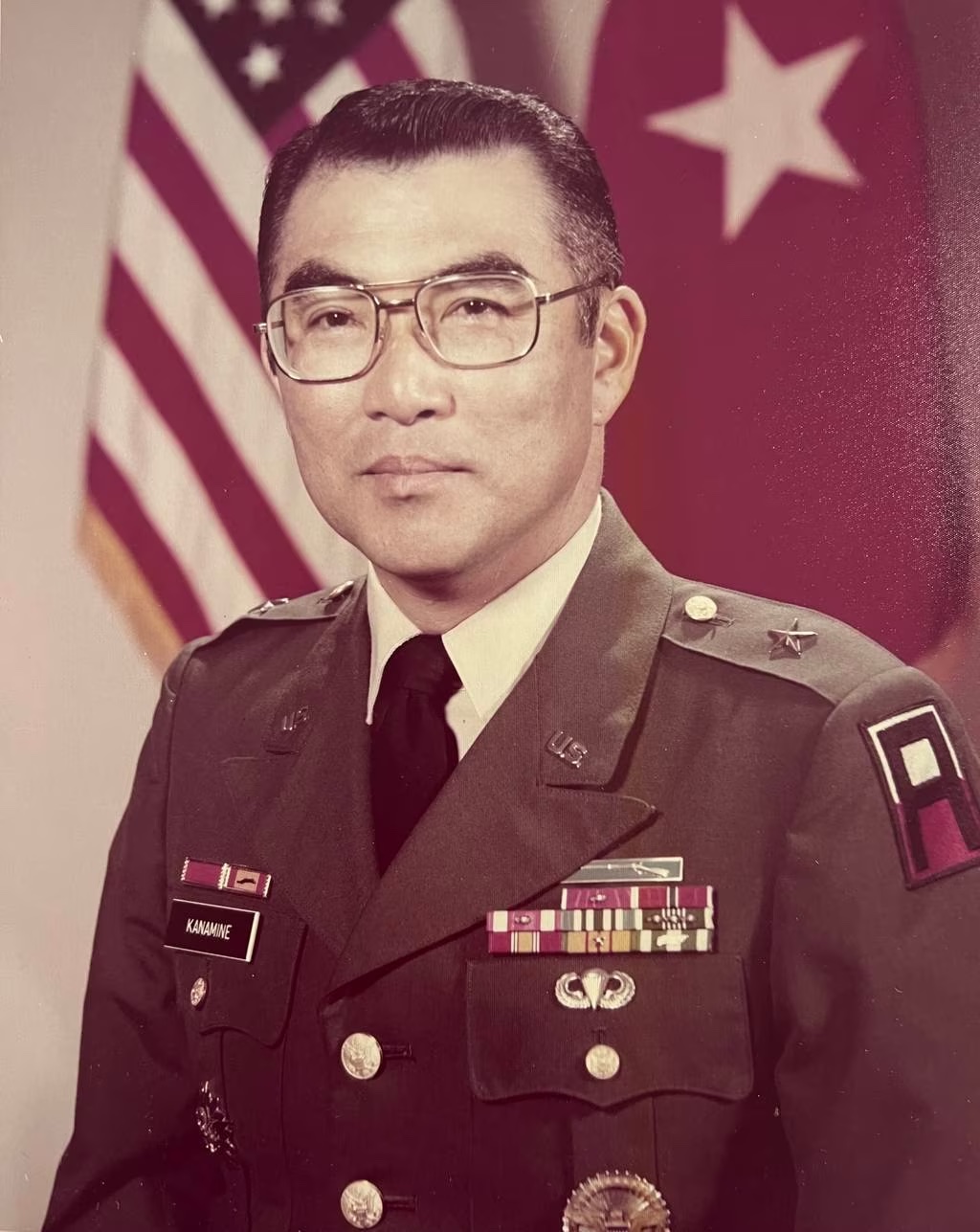Retired Brig. Gen. Theodore Shigeru Kanamine, the first active-duty Japanese-American general in the U.S. Army, died at his home last Thursday after a brief battle with cancer. He was 93.
Born in North Hollywood, California, Kanamine often reflected on growing up in an entertainment-rich area, where he and other neighborhood kids would frequently receive invites from Walt Disney Studios to view unfinished cartoons right down the hill from his family’s home. His pleasant childhood, however, would be interrupted in December 1941 following the Japanese bombing of Pearl Harbor.
With President Franklin D. Roosevelt’s signing of Executive Order 9066 in 1942, the Kanamine family — his two parents, younger sister and himself — were relocated to an internment camp in Jerome, Arkansas, where they would remain for two years until a lawyer from Nebraska took the family into his home.
Kanamine would go on to major in criminal psychology and attend law school at the University of Nebraska-Lincoln. Upon finishing his studies in 1954, Kanamine married Mary Stuben. The two were wed right across the Nebraska border in Council Bluffs, Iowa, due to Nebraska laws that banned interracial marriage.
One year later, Kanamine answered the call to serve and commissioned as a second lieutenant in the Military Police Corps.
Kanamine deployed in both the Korean War and Vietnam War, where he was an aide to 4-star Gen. Creighton Abrams. He later took command of the 716th Military Police Battalion, which provided security to the capital city of Saigon.
Once he returned stateside, Kanamine took charge of the Army Criminal Investigation Division’s look into the Mỹ Lai massacre. He concluded his 28 years in the military as chief of staff of the First Army at Fort Meade, Maryland.
Discussing his career in a 2012 interview with Discover Nikkei, Kanamine credited his success to “personal discipline to know what is right and develop the skills necessary to do whatever the task is in the best way you know how.
“This reflects my development in the military and the way I live my life today,” he said during the interview. “I believe in the philosophy of ‘Duty – Honor – Country.’ I think my family and friends know this.”
Kanamine’s eldest son and namesake, retired Col. Theodore Kanamine, told Military Times he hopes people will remember his father for the way he listened and responded to people, even while disagreeing.
“He was a very kind and civilized person,” the younger Kamanine said. “I don’t think he ever responded very angrily, aggressively. Even if he felt those [inclinations], he was always very measured in what he did, and I think one of the things he taught us is things aren’t always as they initially present themselves. Withhold your judgement until you get the whole side of the story.”
Kanamine’s many awards include the Distinguished Service Medal, the Legion of Merit with Oak Leaf Cluster, the Bronze Star, and a Meritorious Service Medal with Oak Leaf Cluster.
He is survived by his wife, their five children, 12 grandchildren and 12 great-grandchildren.
Originally published by Military Times, our sister publication.





